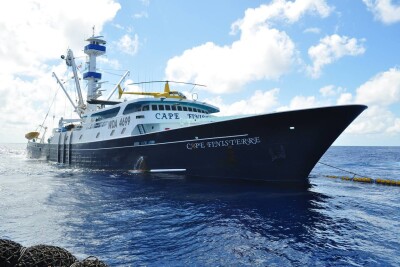After a heated debate over high fishing fees and an announcement that the U.S. would pull out of the South Pacific Tuna Treaty, negotiations have restored the treaty and U.S. fishing vessels are back at sea.
Pacific bluefin tuna. NOAA photo.Due to a bad 2015 season, the 37-boat American tuna fleet said they couldn’t afford the fees for the fishing days they had agreed to buy in August. They sought to lower the number of fishing days for the fleet and reduce their bill, but the Solomon Islands-based Pacific Islands Forum Fisheries Agency, the administrators of the treaty were holding the fleet to their initial agreement.
The U.S. Department announced in mid-January that it intends to pull out of the 27-year-old treaty, effective immediately, and U.S. boats were headed back to port along the California coast.
Now the department has announced that they’ve negotiated, lowering the number of collective fishing days from 5,959 to around 3,900 and the fleet’s tuna tab from $90 million to $66 million. The unused days will be resold to other nations, according to the treaty agency, but those deals will not be as profitable as the original deal with the U.S.
“I commend the Pacific Island Parties for once again being able to use their strong commitment to regional cooperation,” agency Director-General James Movick said in a prepared statement, “and unity to find solutions to a problem that has been foisted on them by the actions of others, in this case the U.S. tuna fishing fleet.”
While recent disagreement over the treaty has been resolved, the U.S. fleet isn’t out of the fire quite yet. The current agreement only lasts until the end of 2016, so negations will continue to ensure the treaty works for everyone if it is renewed next year.
It’s impossible to tell what might come of a renegotiation at this point, but the U.S. will surely be looking to add more flexibility to the agreement, avoiding the pitfalls we faced this year. One bad season can really affect the fleet, so tuna boats need to have the option to assess their situation and change their outlook for the next season.
Complete withdrawal from the treaty would devastate the U.S. fleet, so expect to hear about the treaty from now until its renewal.







